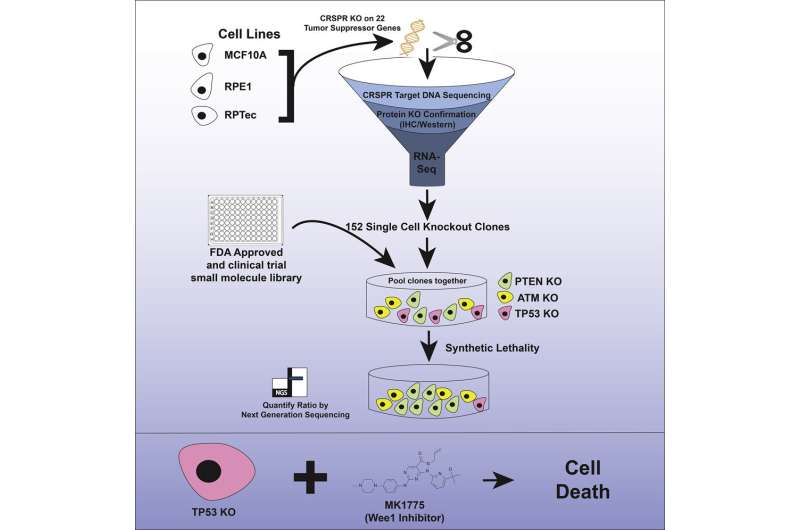A new tool to screen drugs that target loss of tumor suppressor genes

In a May publication in iScience, researchers led by Ludwig Johns Hopkins's Ashley Cook, Nicolas Wyhs, Kenneth Kinzler and Shibin Zhou described their creation of a panel of isogenic—or genetically identical—cell lines designed to enable the large-scale screening of drugs that target cancers driven by the loss of function of tumor suppressor genes.
The majority of cancer-driving mutations in tumors disable tumor suppressors, and many tumors are driven exclusively by such loss of function mutations. Yet only one drug approved by the U.S. Food and Drug Administration targets such a driver mutation. This species of cancer drivers can be targeted by disrupting new and unique biochemical dependencies that are generated in cancer cells by the loss of a critical gene function.
The 100 cell lines developed by the Ludwig Johns Hopkins team permit the discovery of such dependencies because they are genetically identical to a corresponding line except in the functionality of one of 19 tumor suppressor genes. The cells encode DNA barcodes to enable multiplex screening, and the researchers developed an assay for high throughput drug screening using their cells. They validated their system by confirming that the Wee1 inhibitor MK-1775 is a selective growth inhibitor of cancer cells characterized by loss of function of the tumor suppressor TP53.
More information: Ashley L. Cook et al, An isogenic cell line panel for sequence-based screening of targeted anticancer drugs, iScience (2022). DOI: 10.1016/j.isci.2022.104437




















